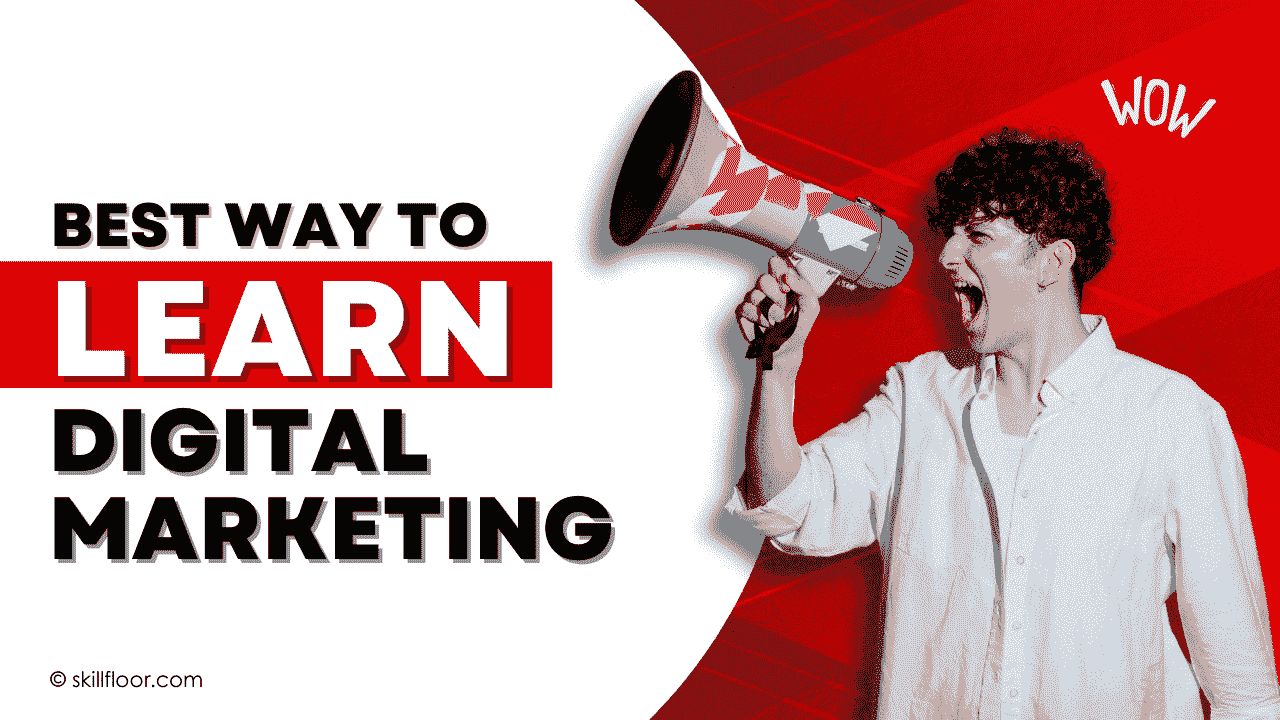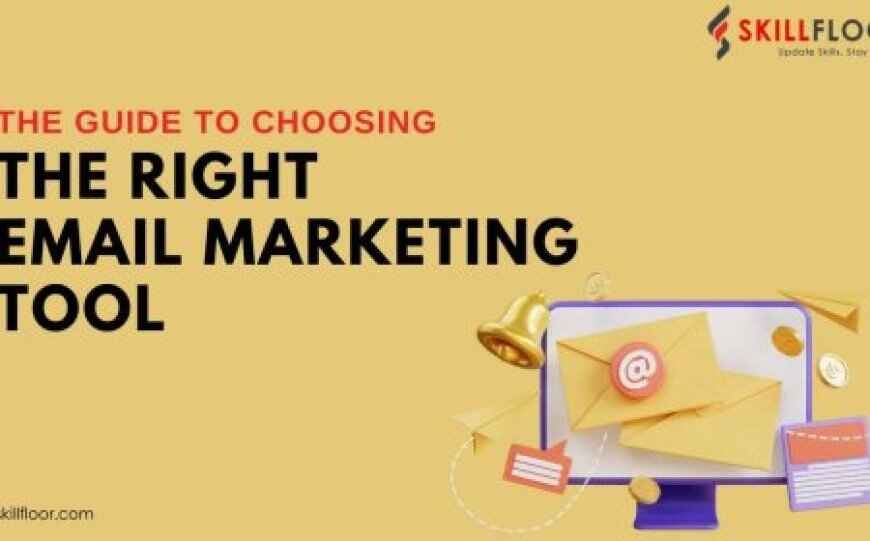The Best Way to Learn Digital Marketing
The most effective methods for mastering digital marketing. Learn key strategies, tools, and resources to boost your skills and career.

When I first started learning digital marketing, I realized there are many ways to get into the field. You can take courses, read books, watch videos, and get real-world experience. Each method has its own benefits, and using a mix of them can give you a well-rounded education. For me, taking a course was a great starting point. Courses can quickly teach you the essential skills and help you get a good grip on the basics.
The Importance of Digital Marketing
Today, digital marketing is crucial for anyone looking to succeed online, whether you’re running a business, working in marketing, or just starting out. The digital marketing world is broad, covering areas like SEO (search engine optimization), content creation, social media, and online ads. With so much information available, it can be confusing to know where to begin.
Choosing the Right Tools
The problem is that with so many resources and methods, it’s easy to feel overcome. When I was starting out, I found it hard to choose the right tools and understand how to use them effectively. Plus, the world of digital marketing is always changing, which makes it challenging to keep up with the latest trends and best practices.
Introduction to Digital Marketing
Digital marketing is all about promoting products and services using online tools and platforms. Instead of traditional methods like TV ads or print newspapers, digital marketing uses the internet and digital channels such as search engines, social media, and websites. It includes various techniques to reach and engage with people online.
Importance of Digital Marketing
Digital marketing is crucial today for several reasons:
-
Broad Reach: The internet connects businesses with a global audience, allowing them to reach people everywhere. This helps expand a business’s market beyond local areas.
-
Cost-Effective: Compared to traditional marketing methods, digital marketing is often cheaper. Options like social media ads, email campaigns, and creating content can be more affordable and offer good returns.
-
Targeted Approach: Digital marketing allows businesses to target specific groups of people based on their interests and online behavior. This means businesses can tailor their messages to those most likely to be interested.
-
Measurable Results: One of the biggest advantages of digital marketing is the ability to measure results. Tools like website analytics help track how well marketing efforts are performing and what needs to be improved.
-
Direct Engagement: Digital marketing platforms, especially social media, enable direct interaction with customers. This helps build relationships, address concerns, and get feedback.
-
Adaptability: The digital world is constantly changing, and digital marketing allows businesses to quickly adapt to new trends and technologies. This helps them stay relevant and competitive.
The Best Way to Learn Digital Marketing
I’ll share a simple, effective approach based on my own experiences.
1. Start with the Basics
To get started with digital marketing, you need to understand the basics. Here’s a simple way to do it:
-
Online Courses: Taking online courses is a great way to learn. These courses cover all the main topics in digital marketing, including SEO, content marketing, social media, and online ads. They provide structured learning and help you grasp essential concepts.
-
Books and Blogs: Reading books and blogs can reinforce what you learn in courses. Books offer in-depth explanations, while blogs provide up-to-date information and practical tips on current trends and techniques.
2. Focus on Key Areas
Digital marketing includes several key areas. Here’s where to focus:
-
SEO (Search Engine Optimization): SEO helps your website appear in search results. Learn about keyword research, site optimization, and tracking results. Understanding SEO is crucial for driving organic traffic to your site.
-
Content Marketing: Creating valuable content is at the heart of digital marketing. Learn how to craft content that attracts and engages your audience. This includes writing blog posts, creating videos, and designing graphics.
-
Social Media Marketing: Platforms like Facebook, Instagram, and LinkedIn are essential for reaching your audience. Learn how to effectively use these platforms to promote your brand, engage with followers, and run advertising campaigns.
-
PPC (Pay-Per-Click) Advertising: PPC ads can quickly bring traffic to your site. Learn how to create and manage ads on platforms like Google and Facebook to drive immediate results.
3. Get Practical Experience
Just learning theory isn’t enough. You need to practice what you’ve learned:
-
Create Your Own Projects: Start your own blog or website. This lets you try out SEO techniques, create content, and use social media marketing. It’s a low-risk way to practice and refine your skills.
-
Freelance or Volunteer: Offer to help local businesses or non-profits with their digital marketing. This real-world experience is invaluable and helps you build a portfolio.
-
Internships: Look for internships at digital marketing agencies or within companies. Working with professionals gives you practical experience and insight into industry practices.
4. Stay Updated
Digital marketing is always evolving, so it’s important to stay current:
-
Read Industry News: Follow news sources that cover the latest developments and trends in digital marketing. This will help you keep up with changes and new strategies.
-
Join Webinars and Conferences: Participate in webinars and attend conferences. These events offer learning opportunities and help you connect with others in the field.
-
Join Professional Groups: Engage with digital marketing communities online. These groups often share valuable insights and updates on emerging trends.
5. Pursue Advanced Certifications
Once you’re comfortable with the basics, getting advanced certifications can deepen your skills and enhance your resume:
-
Google Analytics Certification: This certification helps you understand how to track and analyze website traffic, a key skill for any digital marketer.
-
Content Marketing Certification: Focuses on creating and managing effective content strategies, which are crucial for engaging your audience.
-
Social Media Advertising Certification: Covers advanced techniques for advertising on social media platforms, helping you master paid social strategies.
6. Network with Industry Experts
Networking can also help you learn more about digital marketing:
-
Join Professional Groups: Engage with digital marketing groups online to share insights and learn from others.
-
Attend Local Events: Look for local marketing meetups and events to connect with professionals and get practical advice.
-
Follow Influencers: Follow digital marketing experts on social media. They often share valuable tips and updates that can enrich your learning experience.
Digital Marketing Roles and Responsibilities
Understanding digital marketing roles can help you focus your learning. Here are some key roles and their responsibilities:
-
Digital Marketing Manager: Oversees all digital marketing activities, including strategy development, campaign execution, and performance analysis.
-
SEO Specialist: Focuses on optimizing website content and structure to improve search engine rankings.
-
Content Marketer: Creates and manages content strategies, including blog posts, videos, and social media content.
-
Social Media Manager: Manages social media profiles, creates content, and engages with followers to build a brand’s online presence.
-
PPC Specialist: Manages pay-per-click advertising campaigns, including ad creation, budget management, and performance tracking.
-
Email Marketing Specialist: Designs and implements email campaigns to engage with subscribers and drive conversions.
-
Analytics Specialist: Analyzes data from various digital marketing efforts to measure success and inform future strategies.
In my experience, the best way to learn digital marketing is through a balanced approach. Start with online courses and foundational resources to build your knowledge, then focus on key areas relevant to your goals. Gain practical experience through personal projects, freelancing, or internships, and stay updated with industry trends. Advanced certifications can further deepen your expertise.
Digital marketing is a constantly evolving field, so continuous learning and adaptation are key. By combining structured learning with hands-on practice and staying informed, you can effectively master digital marketing and achieve your goals. Start with the basics, keep learning, and apply what you know to see real results.






























































